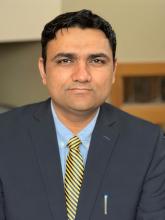Psilocybin benefits in severe depression observed up to 12 weeks
AT APA 2022
Improvements in context
Dr. Goodwin noted that the improvements were swift and impressive when compared with those of the STAR*D trial, which is the largest prospective study of treatment outcomes in patients with MDD.
“In the STAR*D trial, third- and fourth-step treatments showed low response rates of under 15% and high relapse rates,” Dr. Goodwin said. “By comparison, our response rates at 12 weeks were 20%-25%, so almost double that seen for probably equivalent treatment steps in STAR*D, with a single treatment with 25 mg, and no additional antidepressant, so no side effect burden.
“We hope to follow up enough of these patients [in the new study] to get some idea of relapse rates,” Dr. Goodwin added. “These have been low in comparable studies with MDD patients: We will see.”
Commenting on the research, Balwinder Singh, MD, of the department of psychiatry and psychology, Mayo Clinic, Rochester, Minn., said the study represents a valuable addition to needed evidence on psilocybin – with some caveats.
“This study adds to the emerging evidence base of psilocybin for treatment-resistant depression, at least in the short term,” he said in an interview. “I think the challenge in the real world would be to have access to 6-8 hours of therapy with psilocybin when patients struggle to find good therapists who could provide even weekly therapy for an hour.”
In addition, Dr. Singh questioned the durability of a single dose of psilocybin in the long term, noting a recent study (N Engl J Med. 2021 Apr 15. doi: 10.1056/NEJMoa2032994) that evaluated two doses of psilocybin (25 mg) 3 weeks apart, and failed to show any significant difference compared with the serotonergic antidepressant escitalopram at 6 weeks.
He further expressed concern about the emergence of suicidal behaviors in some patients, as well as the prolongation of QTc > 60 msec reported in the two patients.
“This is something to be carefully assessed in future studies, due to the risk of arrhythmias,” Dr. Singh said.
The study was sponsored by COMPASS Pathfinder Limited. Dr. Goodwin is chief medical officer for COMPASS Pathways. Dr. Singh had no disclosures to report.







